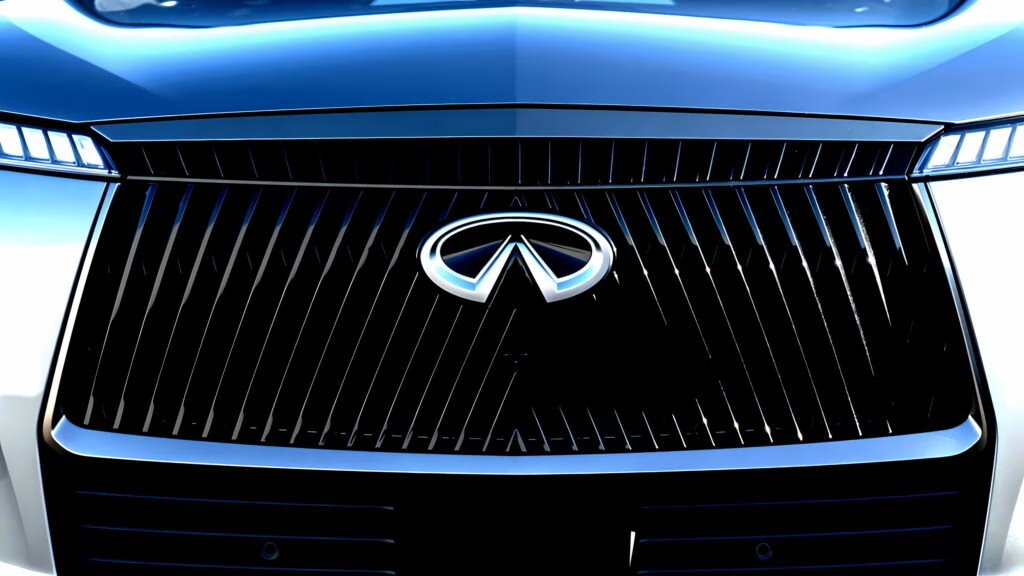Why Is Nissan Rethinking Its Canton, Mississippi Plant Strategy?
Nissan’s Canton, Mississippi plant has long been a cornerstone of the company’s U.S. manufacturing presence. But lately, the buzz isn’t about the Altima or Frontier rolling off the line—it’s about a potential seismic shift in what gets built there. So, what’s really going on behind the scenes?
Originally, Nissan had big plans to transform Canton into an electric vehicle (EV) powerhouse. But with the EV market cooling off—thanks in part to shifting incentives and consumer hesitation—the company is reportedly working on a bold Plan B. According to industry insiders, Nissan is now eyeing a comprehensive body-on-frame product strategy for the facility. Translation? Think more rugged SUVs and trucks, less focus on all-electric sedans and crossovers.
What New Models Could Be Built in Canton?
Here’s where things get interesting. If the rumors pan out, Canton could soon be home to the next-generation Nissan Armada and Infiniti QX80—two full-size SUVs that have traditionally been imported. By moving production stateside, Nissan would dodge tariffs and cement its presence in a market that craves big, capable vehicles.
But that’s not all. The plant might also churn out two brand-new, truck-based SUVs built on the next-gen Frontier platform. One is believed to be a revival of the beloved Xterra, this time with a twist: electrified powertrains, including a plug-in hybrid or Nissan’s ePower system. The other? An Infiniti variant designed to take on luxury rivals like the Lexus GX, possibly as a spiritual successor to the QX4.
How Would This Shift Impact Jobs and Production Capacity?
Canton’s current output is a far cry from its potential. Right now, the plant is running at less than half capacity, mostly assembling Altimas and Frontiers. If Nissan’s new plan takes off, the facility could see annual production soar past 400,000 vehicles. That’s enough to keep two assembly lines humming at full tilt and a third at half-speed.
This isn’t just good news for Nissan—it’s a shot in the arm for the local economy. More models mean more jobs, more supplier contracts, and a revitalized manufacturing hub in the heart of Mississippi. It’s the kind of ripple effect that can transform a region.
Is Honda Really Part of the Picture?
There’s been chatter about Honda and Nissan teaming up to build trucks in Canton. But don’t hold your breath just yet. Multiple sources suggest the deal is still very much up in the air—one insider even called it “pie in the sky at this stage.” For now, Honda seems to be sitting on the sidelines while Nissan explores its options.
Why the Sudden Shift Away from EVs?
This pivot isn’t happening in a vacuum. The U.S. EV market has hit some speed bumps lately. The phase-out of federal tax credits for certain models, combined with consumer concerns about charging infrastructure and range, has cooled demand. According to a 2024 report from the International Energy Agency, global EV sales are still growing, but the pace in the U.S. has slowed compared to previous years.
Nissan’s leadership appears worried that the end of key incentives could trigger a steeper decline. One insider reportedly expects the EV market to “really collapse,” which helps explain why the company is hedging its bets with a renewed focus on body-on-frame vehicles—especially those with hybrid options.
Are Electric Vehicles Still Part of Canton’s Future?
Despite the shift, Nissan isn’t abandoning EVs altogether. Recent reports indicate that two new electric crossovers are still slated for production at Canton, albeit with a ten-month delay. The Nissan version is now expected to launch in November 2028, followed by an Infiniti model in March 2029. It’s a cautious approach: keep a foot in the EV door, but don’t bet the farm on it.
What Does This Mean for SUV and Truck Buyers?
If you’re in the market for a rugged SUV or truck, Nissan’s new direction could be a game-changer. The return of the Xterra, especially as a hybrid, would fill a gap for adventure-seekers who want off-road capability without sacrificing fuel efficiency. Meanwhile, a U.S.-built Armada or QX80 could mean better availability, fresher updates, and possibly even more competitive pricing.
For luxury buyers, an Infiniti SUV designed to rival the Lexus GX—with the added bonus of hybrid tech—could shake up a segment that’s been dominated by just a few players.
The Big Takeaway for Nissan and the Industry
Nissan’s evolving strategy in Canton isn’t just about chasing trends—it’s about staying nimble in a market that’s anything but predictable. The company is betting that American buyers still want tough, versatile vehicles, but with a modern twist: electrification where it counts, and manufacturing close to home.
The big takeaway? Reinventing a plant—or a product lineup—isn’t about perfection. It’s about smarter adjustments. Start with one change this week, and you’ll likely spot the difference by month’s end.

